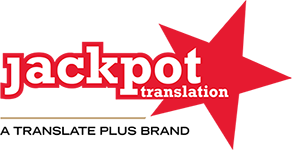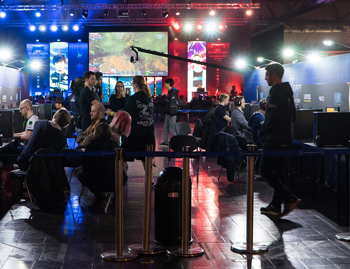
Five types of sports translation a global industry can’t do without
Sports translation is a demanding field but a global audience of hungry fans are not going to wait around while you deliberate on the nuances of sporting language. In fact, modern sports translation is so sophisticated we often do not even notice it is there – and this is precisely what you should be aiming for.
To give you a better idea of how this works, we have got five types of sporting translation that are essential to this global industry. We bet you cannot guess all of them without looking!
#1: Interpretation
This is probably the first kind of sports translation that comes to mind for most people. We have all seen interviews and press conferences interpreted at major competitions like the Olympics and the World Cup and even in globally popular domestic competitions like the English Premier League.
Sport is a global phenomenon with nations constantly competing against each other, host nations holding competitions for the world to see and audiences everywhere tuning in to see their favourite sports and support their teams.
Without interpretation, these tournaments would be impossible to hold and even domestic competitions are filled with foreign-speaking sports starts, managers and corporate representatives who rely on interpretation to get their message across.
#2: Advertising translation
This one is much less obvious but advertising is one of the most important revenue streams for sport at all levels. Earlier this year, Arsenal FC and Rwanda caused a stir when the East African nation signed a £30 million sponsorship deal with the London football club to have the country’s tourism board, Visit Rwanda, displayed on the left sleeve of Arsenal players’ shirts for this season.
Controversy aside (Rwanda received more than £64 million in aid from the UK in 2017/18), this goes to show big sporting advertisement is when it costs £30 million to essentially rent a sleeve for nine months.
To make this advertising model effective and commercially viable, advertising translation needs to be spot on – particularly at the highest level where the world’s biggest brands pay huge amounts of money to get their logos and slogans seen by global audiences.
#3: Website localisation and social media translation
This is the one that connects sports teams with their fans in a globally connected world. The internet has made it easier than ever for clubs, franchises and teams to interact with fans everywhere and this is reflected in the need for website localisation and social media translation.
In today’s sporting environment, teams are willing to buy players from specific parts of the world in order to build a larger fan base. This is how important global exposure is to sports teams and it’s easier than ever now for them to engage with people everywhere, as long as they make the effort to reach out to audiences in their own language.
This can be particularly tricky on social media where people expect a quick response, meaning there is no time to waste in delivering translations.
#4: News translation
Sports news is a big deal – from the latest headlines and transfer rumours to live updates, results and interviews. The demands on sports organisations, teams and publishers to deliver translated news content quickly and accurately is huge while the sheer volume of content sports fans are willing to consume is immense.
Delivering live updates for sporting events and breaking news in multiple languages is particularly difficult and international publishers have a real challenge on their hands to get their stories out there first.
#5: Sportbooking translation
Sports betting has become a pivotal part of the industry – both culturally and commercially – over the past few decades. New markets have emerged around the world and the internet has made this global industry accessible to just about everyone with a phone.
The nature of sports betting has also changed, though, and immersive experiences such as live in-game betting have become the norm. This creates a highly challenging sports translation requirement where content needs to be translated and delivered in real-time without any errors.
Sports betting brands cannot afford to pay out because their slow or poor translations result in people losing money. Luckily, a good mix of translation technology and sports translation specialists means sports betting companies can keep up with live events and deliver content in real-time, in every language they are targeting.
Are you in need of one of these sports translation services? If so, get in touch with our team of language pros today for a consultation.
- Posted by Alexandra Kravariti
- On 28th September 2018
- 0 Comments



0 Comments